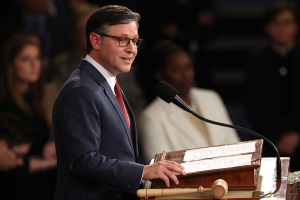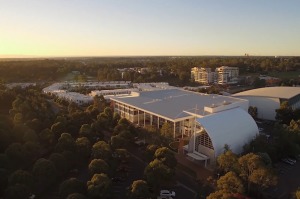Emerging Churches Step Up in Increasingly Gospel-Receptive Society
Non-Christians are more receptive to the Gospel today than at any point in recent American history, according to one research team.
"We are seeing a new level of curiosity among those who are seeking out religion – and we rejoice that people are willing to hear about Jesus," said Sam S. Rainer III, who heads Rainer Research.
While Rainer said he finds the increased receptivity among non-believers encouraging, the problem lies with churches not being able to connect with them and the culture.
"Christians and non-Christians intermingle socially every day, at work, the ballpark, and in the grocery store. But we've lost a sense of urgency in sharing the story of Jesus Christ," he told The Christian Post. "We rush home from work in our cars, pull in the garage by the push of the button, and disappear in our homes to watch two hours of TV, only to get up and do it all over again. We'll stand for hours in line to purchase a Nintendo Wii, but we cringe at crossing the street to get to know our neighbors.
"Believers, me included, need to do a better job at building a sense of community in our own neighborhoods," he added.
But there are churches that have contextualized the timeless message of the Gospel to the culture and are connecting successfully with their communities, Rainer noted.
"Nothing excites me more as a pastor and researcher than hearing about churches that connect with their communities and unashamedly proclaim the name of Christ in a way people can understand," he said.
Ryan Bolger, assistant professor of church in contemporary culture in Fuller Theological Seminary's School of Intercultural Studies and co-author of Emerging Churches: Creating Christian Communities in Postmodern Cultures, has found many churches that are expressing their faith in ways that resonate with those in the 21st century. And they go beyond outreaches and trendy worship that only aim to draw people to church services.
"Donald McGavran ... said a person shouldn't have to change cultures to find God," Bolger said, referring to a former Fuller professor. "A person's difficulty with the Christian faith is often sociological, not theological."
After five years of research on emerging churches, Bolger discovered places that were expressing the Christian faith in cultural forms that made sense to a population that has become more urban. Churches that have been able to connect with their communities were more relational, focused on practices and less institutional, he found.
Such churches incorporated aspects of people's daily lives – whether it's ipods, art or music – into their worship to "weave together the sacred and the secular," he said in a recent interview featured on Fuller's Web site. Along with creativity, these emerging churches have refocused on the life of Jesus as a model way to live. Thus, inviting the outsider in, hospitality, forgiving, peacemaking and praying together daily are central, Bolger pointed out.
"It's not extra, it's not an outreach. It's actually the Gospel. So it's something they have to get right," he said, noting that the emerging churches look to express faith in the workplace, neighborhoods and in everyday activity and are not necessarily looking for ways to bring people to church services.
"The reason they do that is to ground their faith in the practices of everyday so it's not a detached other worldly only faith, but it's something that connects to their everyday," said Bolger.





























